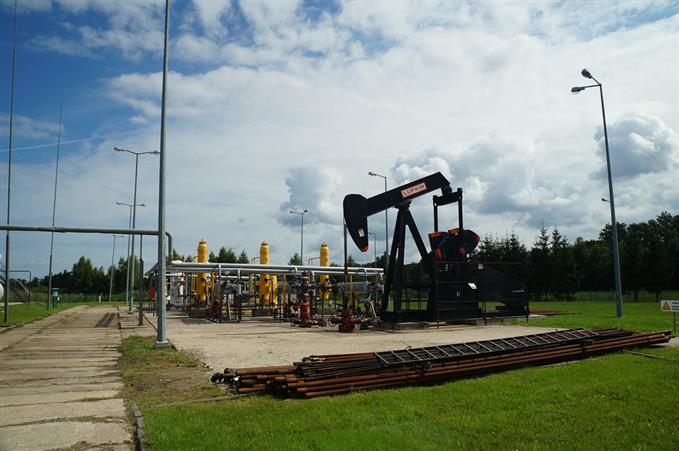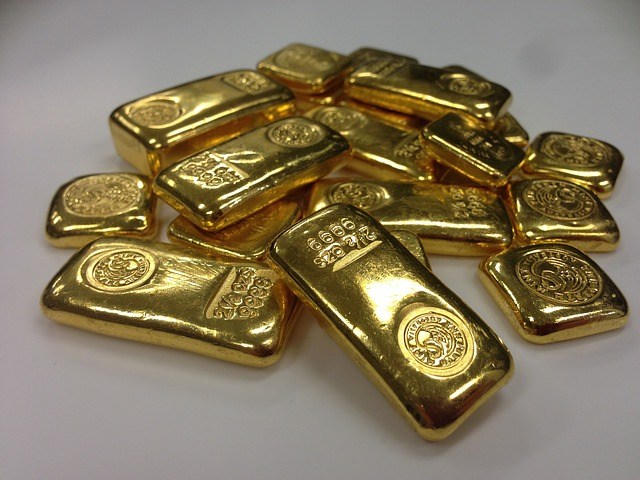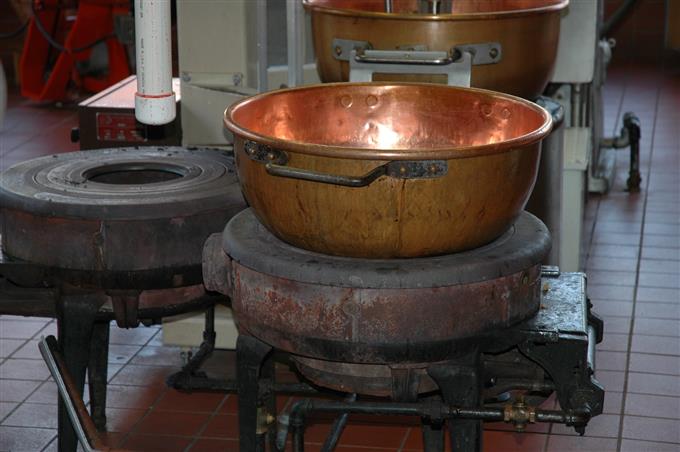
Commodities are raw materials or agricultural products that can be bought and sold, with examples being gold, Natural Gas and wheat. From Copper to corn, coal to crude oil, commodities are central to life – and the lives of billions of people around the world are affected by their price fluctuations.
There are two ways to trade commodities – buying and selling via exchanges, or trading them using derivatives such as binary options, CFDs and spread bets (where permitted). The most liquid commodities markets in the US include crude oil, Natural Gas, and RBOB gasoline, as well as soft commodities such as sugar and wheat. When it comes to a global outlook, steel, aluminum and iron are some of the most traded commodities by volume.
This page covers the major commodities that are most attractive to traders worldwide. Speculators of all levels of experience can discover not only what commodities are in more depth, but their key trading characteristics and tips on how to get started.
To stay up to date with the commodities markets, make sure you view our commodity news and analysis articles.
What Commodities can be Traded?
There are many types of commodities available to trade, and their diversity means they are often grouped into various categories. ‘Hard’ commodities typically refer to natural resources that need to be mined or extracted, while ‘soft’ commodities are grown rather than mined. Another common grouping system splits commodities into ‘agriculture’, ‘energies’ and ‘metals’. In this table, we show a range of commodities according to category:
| Energy Commodities | Metal Commodities | Agriculture Commodities | Other Commodities |
| Brent Crude | Copper | Coffee | Ethanol |
| Gulf Coast gasoline | Gold | Cotton | Polypropylene |
| Heating oil | Palladium | Feeder cattle | Wool |
| Natural Gas | Platinum | Lumber | |
| Propane | Silver | Maize | |
| Uranium | Rice | ||
| WTI Crude | Sugar cane | ||
| Wheat |
What are the Most Traded Commodities?
By trading volume, the top commodities include gold, silver, US Crude Oil, Brent Crude, Copper, and Natural Gas. Products such as coffee, wheat and sugar are also featured on the list of most traded commodities. Here are some of the major ones to consider:

Gold
For thousands of years, gold has been a highly valued metal. Rising gold prices may signal political upheaval or uncertainty, due to investors turning to the precious metal as a safe-haven asset when other financial instruments are struggling.
Silver
A precious metal with applications in silverware, electronics and jewelry, the price of silver, like all raw materials, is affected by supply and demand balances. Traders may find that silver represents a popular hedge against inflation due to its inverse relationship with the US Dollar, and its high liquidity means silver is a very tradeable commodity.
Crude Oil
Crude oil, a naturally occurring fossil fuel formed from ancient organic matter, is of interest particularly to swing and day traders, who seek to take advantage of quick market fluctuations. Crude oil is refined into petroleum products such as gasoline, diesel, solvents and kerosene, which in turn have applications ranging from jet fuel to heating oil for boilers and furnaces.

Copper
With utilities ranging from fertilizer to electric wiring, Copper is one of the most widely used metals. It is also widely available, meaning that its value is linked to its industrial applications rather than its supply. The price of copper can be linked to economic health, so traders often take a position based on their view of world growth and GDP.
Natural Gas
Natural Gas, like crude oil, is a fossil fuel formed over millions of years from the remains of plants and animals. Traders are attracted to Natural Gas due to factors including growth potential and demand for clean energy.
Coffee
Coffee is classified as part of the soft commodities group including the likes of cocoa, sugar and orange juice. When it comes to trading, coffee is one of the most volatile commodities because its supply is dependent on agriculture in developing and emerging economies, while demand is highest in Western markets. (if you want to make money in the financial market use our forex advisor)
What is Commodity Trading?
Commodity trading can mean two things – buying and selling commodities via exchanges, or trading them via derivatives (where permitted).
Some commodities are more tradeable than others. For example, markets such as orange juice, oats and feeder cattle are less liquidity – such markets often prohibit speculators from entering or exiting a trade at the point they would like to. An example of a more tradeable commodity is Natural Gas, with crude oil and corn also considered liquid markets.
When trading commodities, speculators should consider factors such as the level of volatility associated with the trade, the aforementioned liquidity of the market, and other factors that influence price movements, listed below. Read more forex news…
What Moves Prices in Commodity Markets?
When negotiating the commodities market, traders should consider a variety of factors, such as:
Supply and Demand
A lower supply of a commodity tends to mean the price of that commodity will rise, and a higher supply conversely means the price is likely to fall. The variables affecting supply include:
- Seasonality: for example, for agricultural products
- Movements in production costs: for example,as a result of increased efficiencies, technological investment or operational changes
- Changes in the competitive landscape: for example, if new producers enter or existing producers leave the market.
While oversupply (supply exceeding demand) may push down prices, demand becoming greater than supply can cause a shortage which can raise prices again. The rapid fluctuations that can result means those trading commodities should keep up to date with supply and demand conditions.
Macroeconomic Performance
A struggling wider economy can result in stunted consumer spending, meaning some commodity prices may fall. Conversely, a booming economy may result in increased demand for certain commodities, which could lead to higher prices until supply catches up.
Politics
Political events have the power to shift prices. For example, export and import policies can have a significant impact on commodity prices. For instance, if a government increased import duty on crude oil, that could push up the price of the commodity.
Behavior of Other Traders in the Market
Speculators all have access to the same charts, meaning particular reactions to a pattern may cause a herd of buying or selling that can also influence prices.
For traders: test results of our forex ea free or use our best Portfolio of forex robots for automated trading.
Why Trade Commodities?
The commodities market is attractive to traders because it can offer:
A Safe Haven
Certain commodities, such as gold, can be a sensible investment in times of market turbulence. This is due to the likelihood of the asset retaining its value – or even increasing in price – during challenging economic conditions.
Profitable Returns
The dramatic swings in commodity prices mean that, with the right knowledge, traders can take advantages of price movements in liquid markets.
A Diversified Portfolio
Broad exposure to commodities can be a good source of portfolio diversification, as they collectively show low correlations with equities and bonds.
Tips for trading commodities
- To stay ahead of the market, see our Commodity News and Analysis where experts analyze some of the major commodity price developments
- Before entering a trade, decide on a risk-reward ratio. At DailyFX we recommend using a positive risk-reward ratio. See our Traits of Successful Traders guide for more information on this
- See our economic calendar for the dates and times of important data releases
- Traders should always update their knowledge and skills. DailyFX experts host webinars that cover trading strategies and tips, see our Webinar Calendar to learn more
NOTE: You can not find the right trading strategy? if you have no time to study all the tools of the trade and you have not funds for errors and losses – trade with the help of our best forex robot developed by our professionals. We offer forex robot free download.
Commodity Trading Hours
| Commodity | Open to Close (ET) | Break Time (ET) | Open to Close (GMT) | Break Time (GMT) |
| Gold | 18:00-17:00 Sunday-Friday | 17:00-18:00 Monday-Friday | 23:00-22:00 Sunday-Friday | 22:00-23:00
Monday-Friday |
| Silver | 18:00-17:00 Sunday-Friday | 17:00-18:00 Monday-Friday | 23:00-22:00 Sunday-Friday | 22:00-23:00
Monday-Friday |
| Oil – US Crude | 18:00-17:00 Sunday-Friday | 17:00-18:00 Monday-Friday | 23:00-22:00 Sunday-Friday | 22:00-23:00
Monday-Friday |
| Oil – Brent Crude | 18:00-17:00 Sunday-Friday | 17:00-18:00 Monday-Friday | 23:00-22:00 Sunday-Friday | 22:00-23:00
Monday-Friday |
| Copper | 18:00-17:00 Sunday-Friday | 17:00-18:00 Monday-Friday | 23:00-22:00 Sunday-Friday | 22:00-23:00
Monday-Friday |
| Natural Gas | 18:00-17:00 Sunday-Friday | 17:00-18:00 Monday-Friday | 23:00-22:00 Sunday-Friday | 22:00-23:00
Monday-Friday |

 Signal2forex.com - Best Forex robots and signals
Signal2forex.com - Best Forex robots and signals




